
Kharkiv: The Heartbeat of Eastern Ukraine
Kharkiv, the second-largest city in Ukraine, is a bustling metropolis known for its rich history, vibrant cultural scene, and impressive architecture. Located in the northeastern part of the country, Kharkiv is a major educational and industrial hub, home to numerous universities and research institutions, which give the city a youthful and dynamic energy. Visitors to Kharkiv can explore iconic landmarks such as Freedom Square, one of the largest city squares in Europe, and the Derzhprom building, a stunning example of constructivist architecture. The city's many parks and gardens, including the Shevchenko Park and the Botanical Garden, offer peaceful retreats where you can relax and enjoy nature. Kharkiv is also a city of museums and theaters. The Kharkiv Historical Museum and the Museum of Fine Arts provide insights into the city's past and its artistic heritage. The Kharkiv National Academic Opera and Ballet Theatre is a must-visit for lovers of performing arts, offering world-class performances in a majestic setting. Food enthusiasts will delight in Kharkiv's diverse culinary scene. From traditional Ukrainian dishes to international cuisine, the city's restaurants and cafes cater to all tastes. Don't miss the opportunity to try local specialties like borscht, varenyky, and salo at one of the many cozy eateries. Whether you're interested in history, culture, or simply enjoying the lively atmosphere, Kharkiv has something for everyone. Its friendly locals, fascinating sights, and vibrant urban life make it a unique destination worth exploring.
Local tips in Kharkiv
- Visit Freedom Square in the early morning or late evening to avoid crowds and enjoy the serene atmosphere.
- Use the Kharkiv Metro for quick and affordable transportation around the city.
- Explore the local markets like Barabashova for unique souvenirs and a glimpse into everyday life in Kharkiv.
- Learn a few basic Ukrainian phrases; locals appreciate the effort and it can enhance your experience.
- Check the schedule at the Kharkiv National Academic Opera and Ballet Theatre for special performances during your stay.
- Try to visit during spring or autumn when the weather is mild and the parks are at their most beautiful.
Neighbourhoods in Kharkiv
Kharkiv: The Heartbeat of Eastern Ukraine
Kharkiv, the second-largest city in Ukraine, is a bustling metropolis known for its rich history, vibrant cultural scene, and impressive architecture. Located in the northeastern part of the country, Kharkiv is a major educational and industrial hub, home to numerous universities and research institutions, which give the city a youthful and dynamic energy. Visitors to Kharkiv can explore iconic landmarks such as Freedom Square, one of the largest city squares in Europe, and the Derzhprom building, a stunning example of constructivist architecture. The city's many parks and gardens, including the Shevchenko Park and the Botanical Garden, offer peaceful retreats where you can relax and enjoy nature. Kharkiv is also a city of museums and theaters. The Kharkiv Historical Museum and the Museum of Fine Arts provide insights into the city's past and its artistic heritage. The Kharkiv National Academic Opera and Ballet Theatre is a must-visit for lovers of performing arts, offering world-class performances in a majestic setting. Food enthusiasts will delight in Kharkiv's diverse culinary scene. From traditional Ukrainian dishes to international cuisine, the city's restaurants and cafes cater to all tastes. Don't miss the opportunity to try local specialties like borscht, varenyky, and salo at one of the many cozy eateries. Whether you're interested in history, culture, or simply enjoying the lively atmosphere, Kharkiv has something for everyone. Its friendly locals, fascinating sights, and vibrant urban life make it a unique destination worth exploring.
When is the best time to go to Kharkiv?
Iconic landmarks you can’t miss
Shevchenko City Garden
Explore the tranquil beauty of Shevchenko City Garden in Kharkiv, a lush urban retreat perfect for relaxation and cultural experiences.
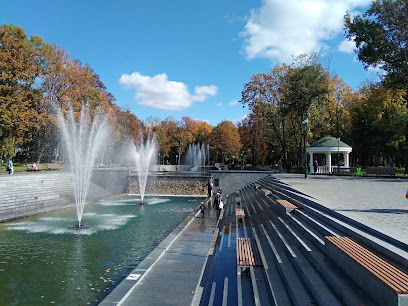
Taras Shevchenko Monument
Explore the Taras Shevchenko Monument in Kharkiv: A historical landmark celebrating Ukraine's literary heritage amidst scenic beauty.
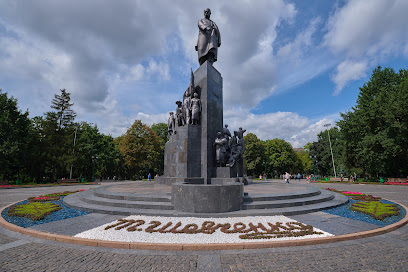
Mirror Stream
Discover the beauty of Kharkiv at the iconic Mirror Stream, a stunning fountain and a top tourist attraction offering serene relaxation and captivating views.
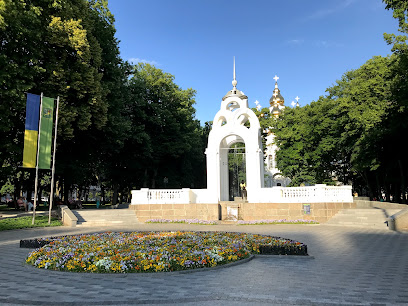
Derzhprom
Discover the grandeur of Derzhprom, a historical landmark in Kharkiv, showcasing Soviet architectural brilliance and vibrant city life.
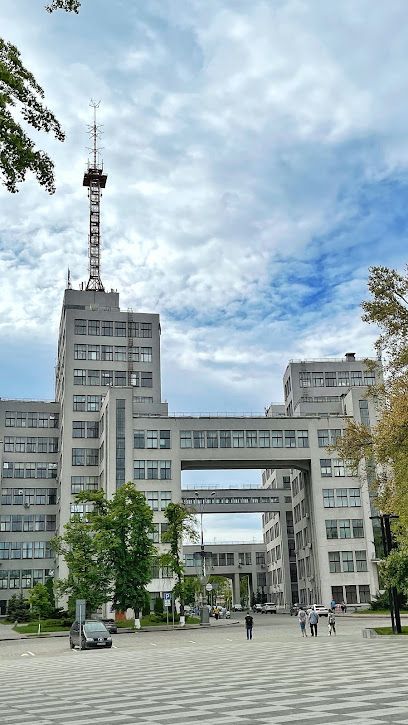
Ferris wheel
Experience breathtaking views of Kharkiv from the iconic Ferris Wheel, a perfect blend of fun and stunning cityscapes for all ages.
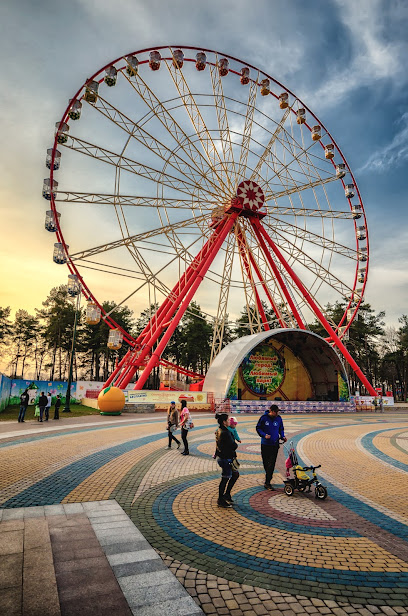
Kharkiv Zoo
Explore Kharkiv Zoo: A beautiful space blending wildlife, education, and relaxation in the heart of Kharkiv.
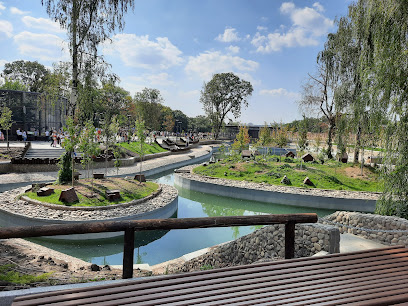
Blahovishchensʹkyy Kafedralʹnyy Sobor
Explore the stunning Blahovishchens'kyy Kafedral'nyy Sobor, a magnificent Orthodox cathedral in Kharkiv, rich in history and architectural splendor.
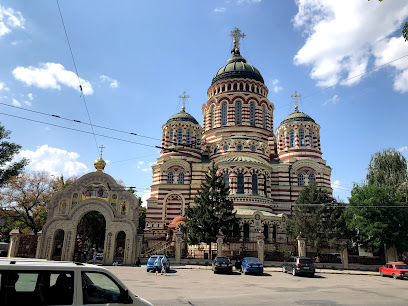
M. F. Sumtsov Kharkiv Historical Museum
Explore the cultural and historical treasures of Kharkiv at the M. F. Sumtsov Historical Museum, a captivating journey through time.
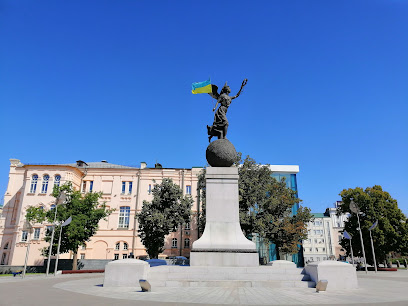
YermilovCentre
Discover the vibrant world of contemporary art at YermilovCentre, Kharkiv's leading modern art museum offering innovative exhibitions and cultural experiences.
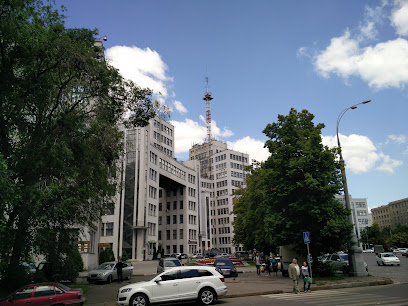
Kytsivsʹka Pustelya
Experience the serene beauty of Kytsivs’ka Pustelya in Kharkiv Oblast, a tranquil nature retreat perfect for relaxation and exploration.
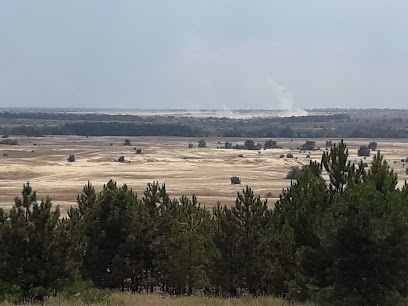
Software and Computer Museum
Explore the captivating history of computing at the Software and Computer Museum in Kharkiv, showcasing the evolution of technology and software development.
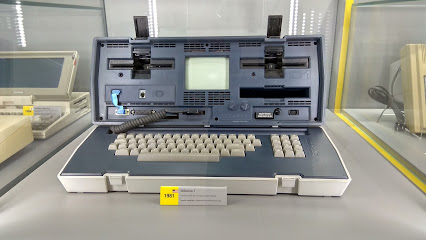
Monument to the Soldier-Liberator
Discover the profound history and artistry of the Monument to the Soldier-Liberator in Kharkiv, a powerful tribute to freedom and resilience.
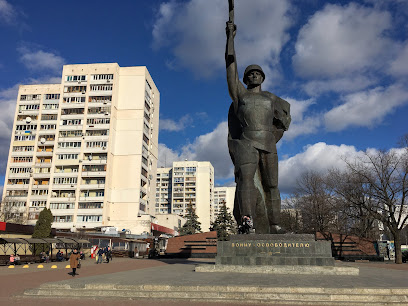
Roman Catholic Church of the Assumption of Mary Prisnodivy
Discover the architectural beauty and spiritual serenity of the Roman Catholic Church of the Assumption of Mary in Kharkiv, a true cultural landmark.
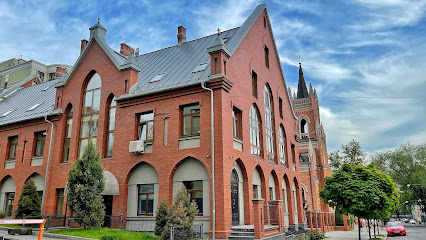
Al-Manar
Discover the beauty and tranquility of Al-Manar, a stunning mosque in Kharkiv that offers rich cultural insights and spiritual serenity.
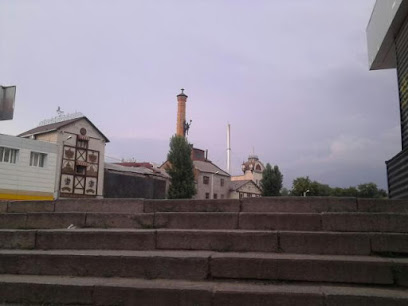
Church of the Holy Myrrh-Bearing Women
Explore the Church of the Holy Myrrh-Bearing Women in Kharkiv, a serene Orthodox church blending spiritual significance with stunning architecture.
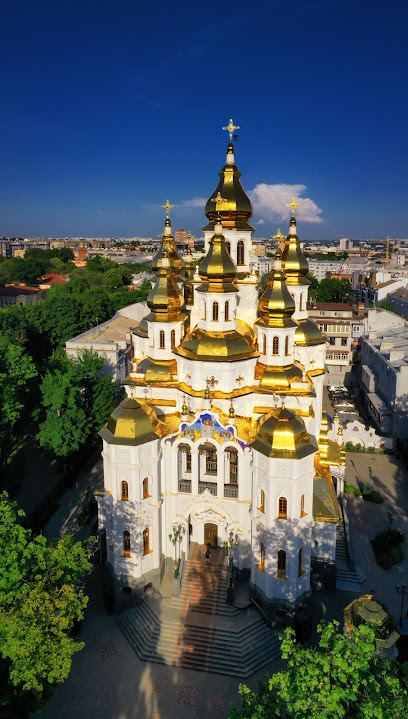
Unmissable attractions to see
Sarzhyn Yar
Explore Sarzhyn Yar, a tranquil urban park in Kharkiv, perfect for relaxation, outdoor activities, and enjoying the beauty of nature.
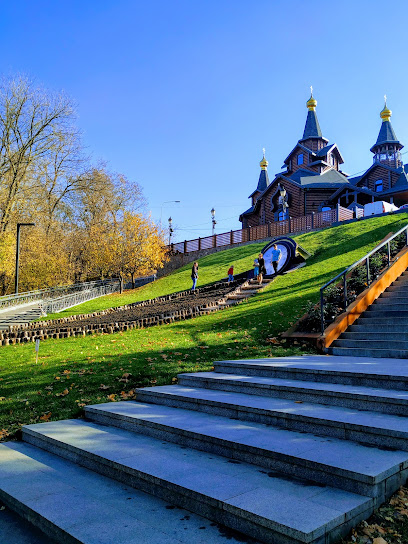
Shevchenko City Garden
Explore the serene beauty of Shevchenko City Garden, Kharkiv's urban oasis filled with lush greenery, stunning views, and vibrant community events.
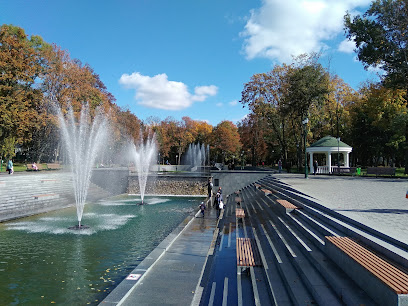
Maxim Gorky Central Park for Culture and Recreation
Discover the vibrant atmosphere of Maxim Gorky Central Park, where nature meets fun in the heart of Kharkiv, Ukraine.
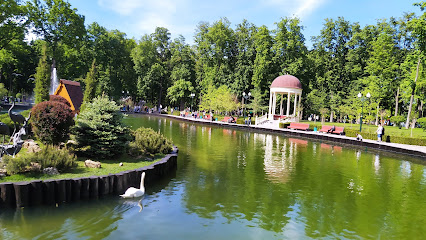
Taras Shevchenko Monument
Discover the Taras Shevchenko Monument in Kharkiv, a cultural landmark that celebrates Ukraine's heritage amidst lush, tranquil surroundings.
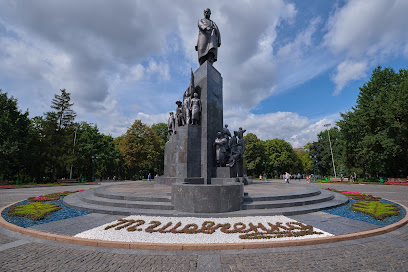
Mirror Stream
Experience the tranquil beauty of Mirror Stream, a stunning fountain in Kharkiv, perfect for relaxation and breathtaking views.
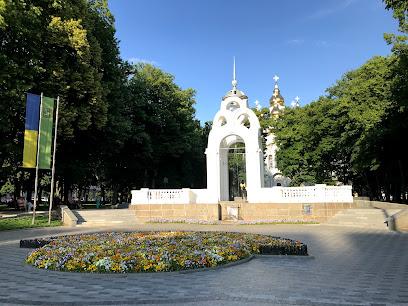
Derzhprom
Explore Derzhprom in Kharkiv, an architectural gem that showcases Soviet-era design and rich historical significance amidst lively Svobody Square.
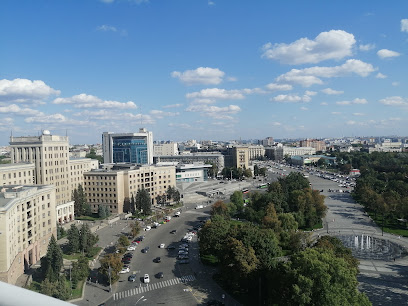
Kharkiv Zoo
Explore Kharkiv Zoo, a delightful mix of wildlife and nature in the heart of Ukraine’s vibrant city, perfect for families and animal lovers.
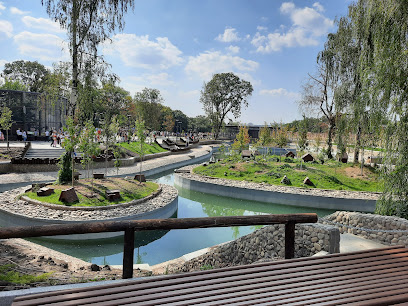
M. F. Sumtsov Kharkiv Historical Museum
Explore the cultural heritage of Kharkiv at M. F. Sumtsov Historical Museum, a treasure trove of history and tradition in Ukraine.
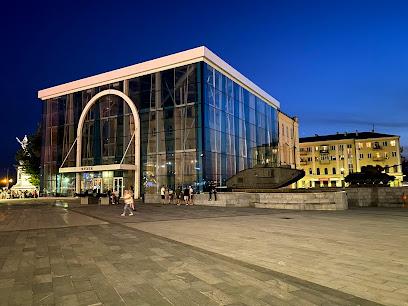
Blahovishchensʹkyy Kafedralʹnyy Sobor
Discover the stunning Blahovishchenskyy Kafedral'nyy Sobor, a magnificent Orthodox cathedral in Kharkiv, rich in history and architectural beauty.
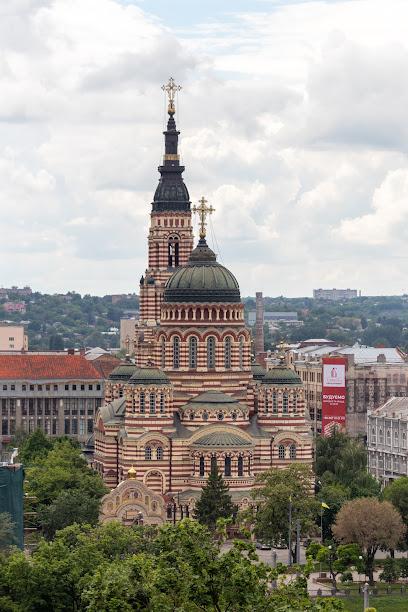
Museum of History and Railway Engineering of the Southern Railway
Discover the captivating history of rail transport at the Museum of History and Railway Engineering in Kharkiv, where innovation meets heritage.
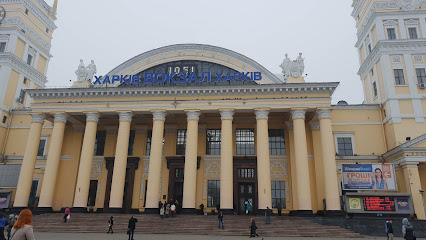
Fine Arts Museum
Explore the Fine Arts Museum in Kharkiv, showcasing a rich collection of local and international art across various styles and periods.
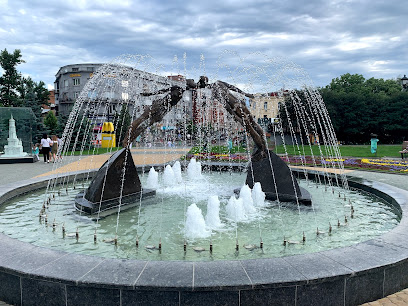
State Museum of Nature of V. N. Karazin Kharkiv National University
Explore the fascinating collections of the State Museum of Nature in Kharkiv, showcasing the wonders of natural history and biodiversity.
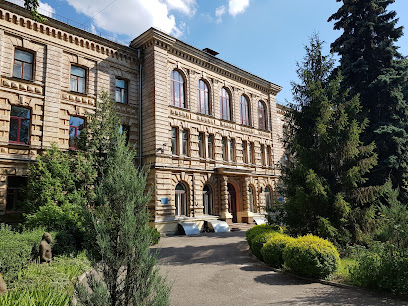
Lovebirds monument
Experience romance and artistry at the Lovebirds Monument in Kharkiv, a captivating landmark celebrating love in the heart of the city.
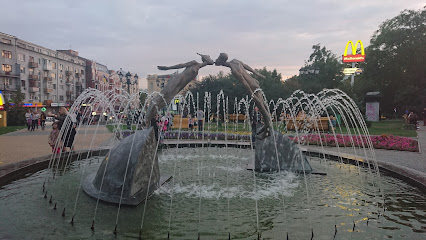
Kharkiv Planetarium named after Yuri Gagarin
Discover the universe at Kharkiv Planetarium, a captivating destination honoring Yuri Gagarin, where stars come alive through immersive shows and exhibits.
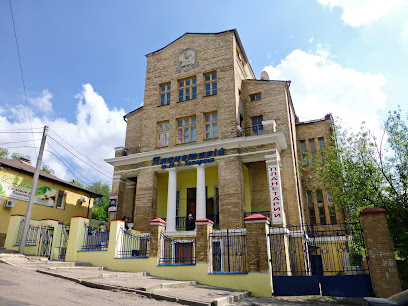
Eiffel Tower
Discover the Eiffel Tower in Kharkiv: a stunning replica offering breathtaking views, rich history, and a taste of romance in the heart of the city.
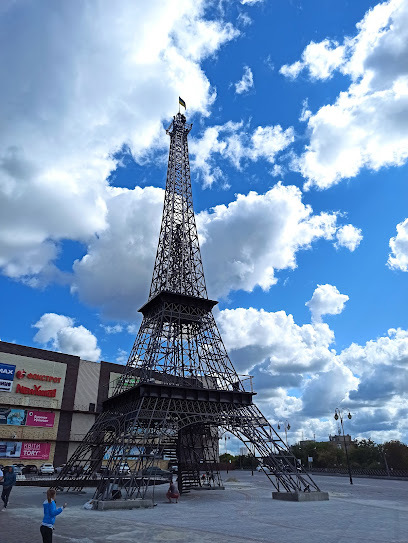
Essential places to dine
44 FAVORITE PLACE - стейк-хауc - место где можно поесть вкусного мяса
Experience the ultimate steakhouse journey at 44 Favorite Place in Kharkiv, where every bite is a celebration of flavor and quality.
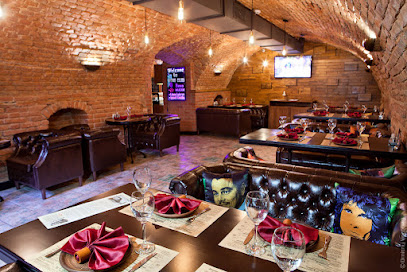
Toy Samyy Baranetsʹ
Discover the rich flavors of Georgia at Toy Samyy Baranetsʹ in Kharkiv – where tradition meets taste.
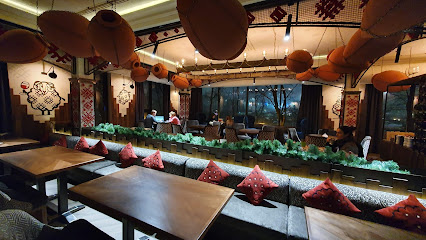
Gdeburger
Discover Gdeburger in Kharkiv – where delicious American cuisine meets vibrant dining experiences.
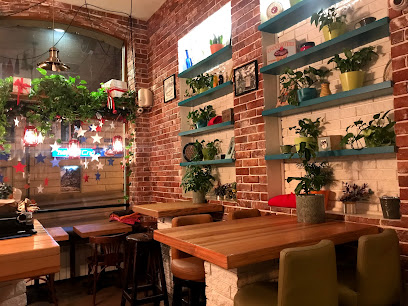
Argentina Grill Аргентина Гриль
Experience authentic Argentine cuisine at Argentina Grill in Kharkiv – where every meal is a celebration!
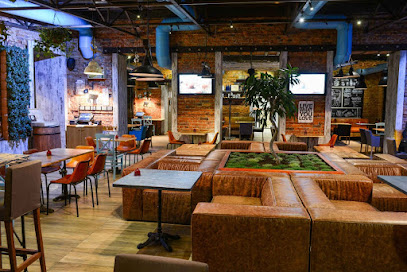
Shoti
Experience authentic Georgian cuisine at Shoti in Kharkiv – a culinary journey through rich flavors and warm hospitality.
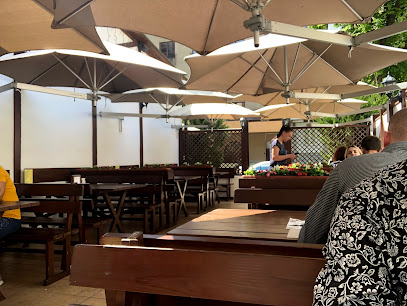
Pushka-Myndalʹ
Experience the vibrant flavors of Kharkiv at Pushka-Myndalʹ—your go-to spot for sushi, pizza, and exquisite seafood.
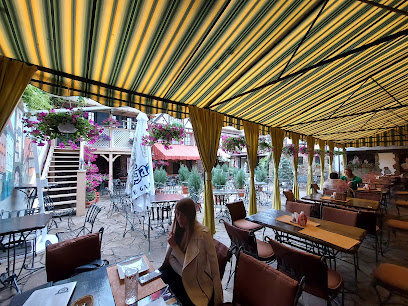
Nikas Restaurant
Discover exquisite cuisine at Nikas Restaurant in Kharkiv – where tradition meets modern culinary artistry.
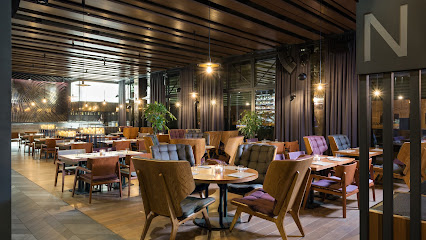
Sloboda
Discover the essence of Ukrainian cuisine at Sloboda in Kharkiv, where tradition meets flavor in a cozy dining experience.
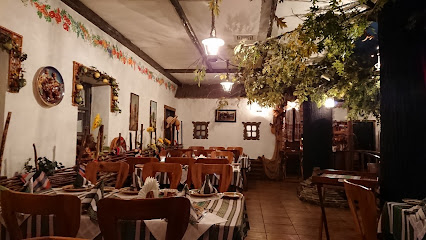
Reina Low & Slow Bar
Experience exquisite slow-cooked meals at Reina Low & Slow Bar in Kharkiv - where every bite tells a story of flavor.
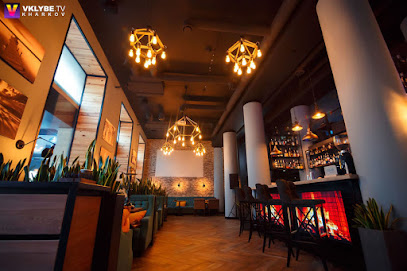
HANEDAN TURKİSH RESTAURANT ресторан турецкий
Experience authentic Turkish cuisine at Hanedan Turkish Restaurant in Kharkiv - where every dish tells a story of flavor and tradition.
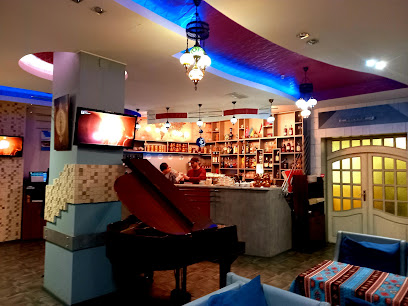
Familia, РЕСТОРАН
Discover the exquisite flavors of French cuisine at Familia, Kharkiv's premier dining destination offering elegance and sophistication.
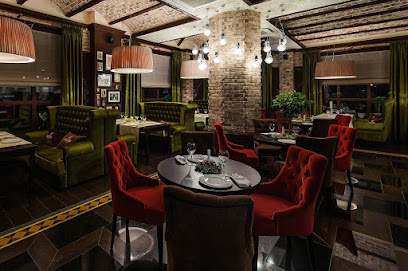
Restaurant Baku Palace
Experience the authentic flavors of Azerbaijan at Restaurant Baku Palace in Kharkiv - a culinary journey worth savoring.
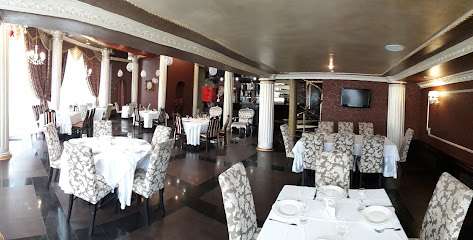
Don Omar
Experience unparalleled seafood dining at Don Omar in Kharkiv – where culinary excellence meets stunning waterfront views.
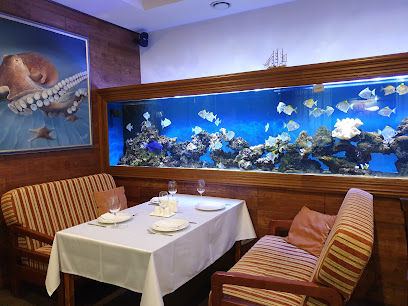
Pinocchio Osteria
Discover authentic Italian flavors at Pinocchio Osteria in Kharkiv—where delightful cuisine meets a vibrant atmosphere.
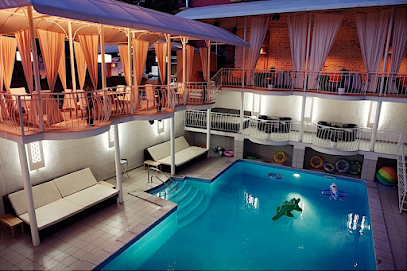
Ресторація KoKAWA
Experience authentic Ukrainian cuisine at KoKAWA, Kharkiv's favorite restaurant offering delightful dishes in a cozy atmosphere.
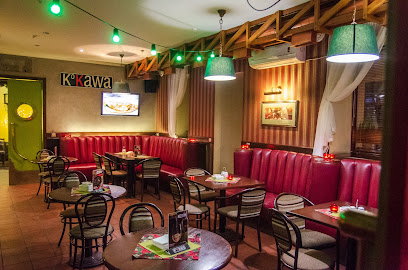
Markets, malls and hidden boutiques
Барабашово
Explore Барабашово in Kharkiv: A vibrant shopping mall and cultural hub, offering thousands of stalls and authentic local cuisine.
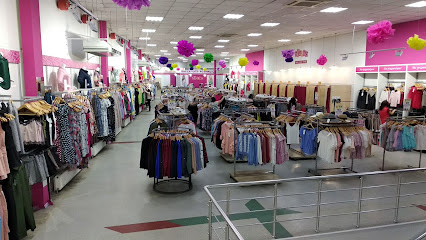
French Boulevard
Discover the charm of shopping at French Boulevard in Kharkiv, where fashion meets culture in a vibrant atmosphere.
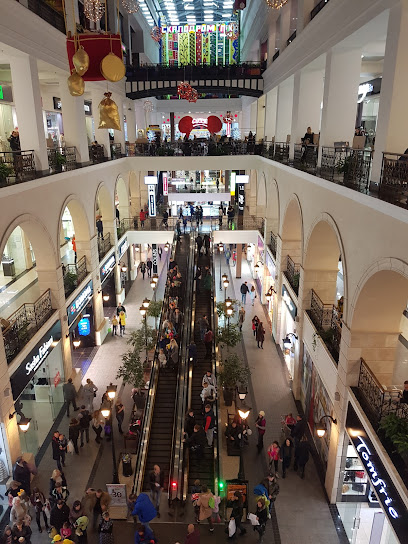
Ave Plaza
Explore the heart of Kharkiv at Ave Plaza, a vibrant shopping mall with diverse shops, dining options, and entertainment for all ages.
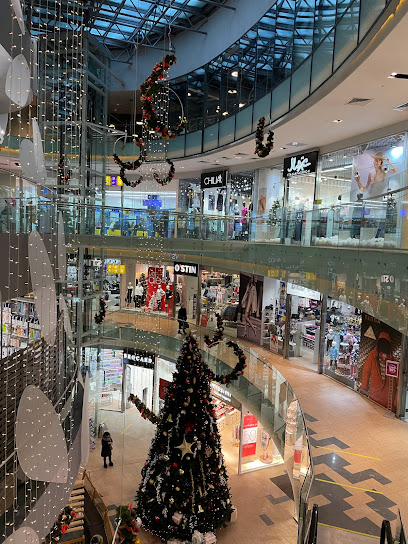
Nikolsky Mall
Experience shopping, dining, and entertainment at Nikolsky Mall, Kharkiv's premier retail destination with five floors of excitement.

SUNMALL
Explore Kharkiv's SUNMALL, where shopping, dining, and entertainment come together for an unforgettable experience in the heart of the city.
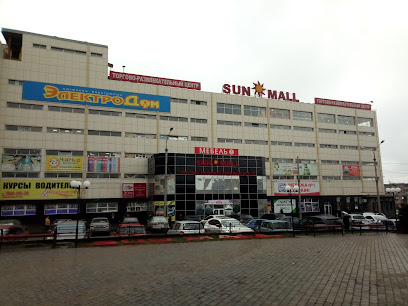
Velta City
Explore Velta City, Kharkiv's premier shopping mall, where modern retail meets vibrant dining and entertainment experiences.
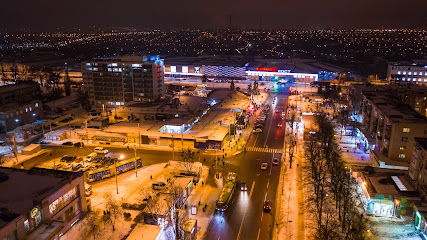
Roller Shop
Discover Kharkiv's Roller Shop - your one-stop destination for all sporting goods, perfect for adventurers and athletes alike in Ukraine.
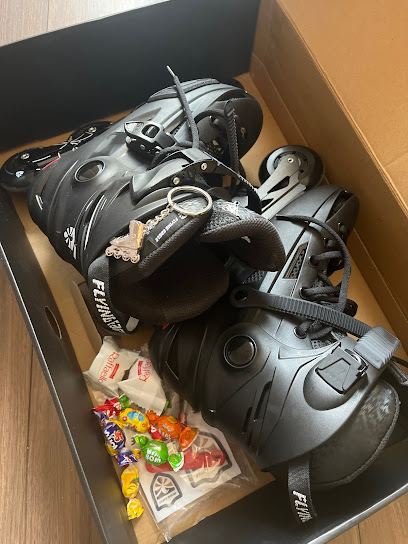
sportswear
Explore the latest trends in fashion and footwear at Sportswear, Kharkiv's premier clothing and shoe store, perfect for every style enthusiast.
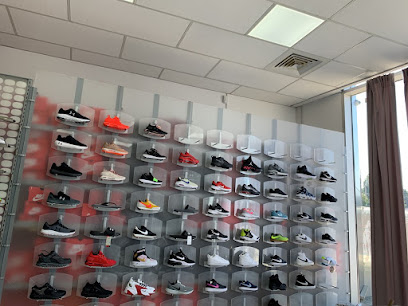
Symbol Assorti
Discover the latest fashion trends at Symbol Assorti in Kharkiv, where clothing, bags, and accessories meet style and elegance.
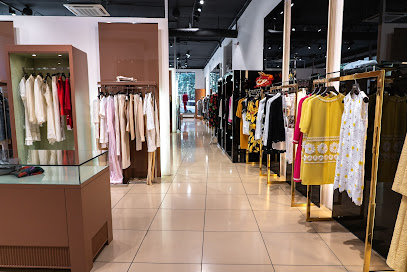
Купить Купальники и Пляжную Одежду в Terramoda.
Explore Terramoda, Kharkiv's premier destination for stylish swimwear and beach clothing, where fashion meets comfort for your summer adventures.
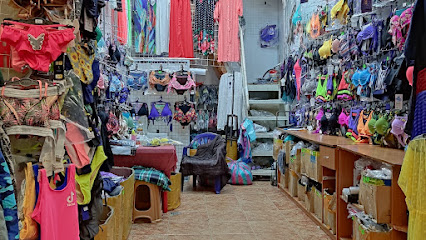
Ovi-Shop - інтернет-магазин одягу від виробника
Explore Ovi-Shop in Kharkiv for a diverse range of quality clothing from top manufacturers at competitive wholesale prices.

Контейнер ВА-511
Explore Контейнер ВА-511 in Kharkiv for stylish dresses and accessories, offering a unique shopping experience for fashion lovers.
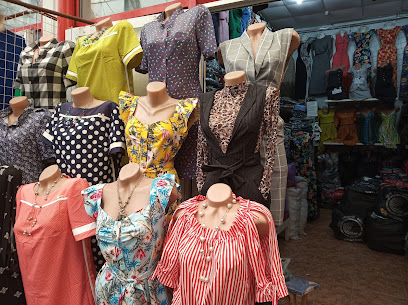
Магазин лыжной одежды и купальников
Shop the best ski and swim apparel in Kharkiv's vibrant Kyivskyi District, perfect for your outdoor adventures and beach days.
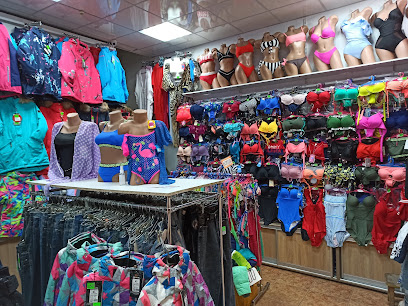
ТОХА - шоурум
Elevate your style at ТОХА - Showroom, Kharkiv's premier destination for men's fashion with a curated selection of contemporary clothing.

RicaMare opt
Explore the heart of Kharkiv's fashion scene at RicaMare, where contemporary style meets local artistry in a captivating clothing store.

Essential bars & hidden hideouts
Fat Goose English Pub
Discover the vibrant nightlife of Kharkiv at Fat Goose English Pub, where great drinks, karaoke, and fun await every visitor.
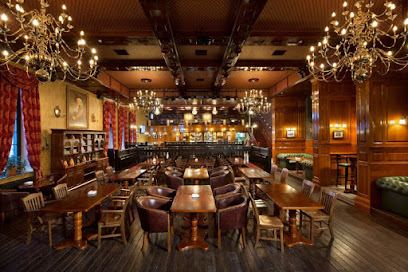
Fabrika.space
Discover the vibrant live music scene and creative atmosphere at Fabrika.space, Kharkiv's premier live music bar and conference center.
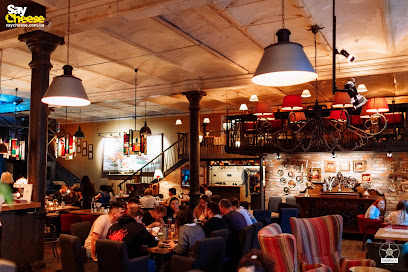
ПРОБКА beer hall
Discover the lively atmosphere of ПРОБКА Beer Hall in Kharkiv, where craft beer meets delicious cuisine and live music for an unforgettable experience.
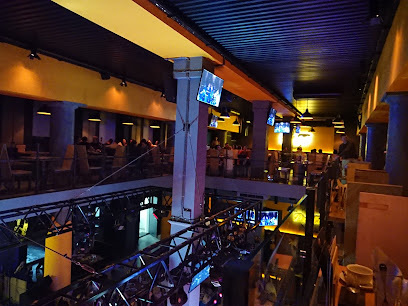
Patrick Irish Pub
Discover the heart of Irish culture at Patrick Irish Pub in Kharkiv – a lively spot for authentic cuisine and a wide selection of beverages.
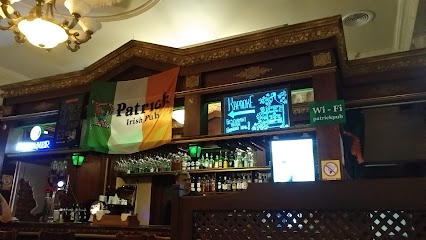
Irish Pub
Discover the vibrant spirit of Kharkiv at the Irish Pub, where Irish hospitality meets local culture in a lively atmosphere.
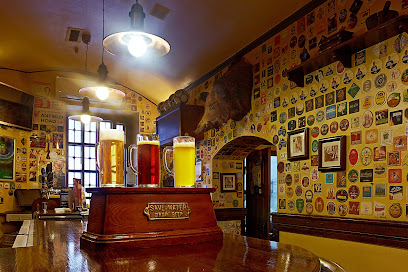
Daf Pub
Experience the vibrant atmosphere and local flavors at Daf Pub, a top beer hall in Kharkiv, perfect for beer lovers and food enthusiasts.
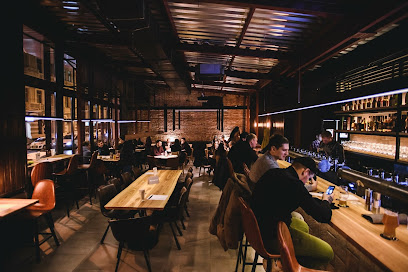
BRO-BAR
Experience the culinary delights of BRO-BAR in Kharkiv, where innovative gastropub cuisine meets a vibrant atmosphere.
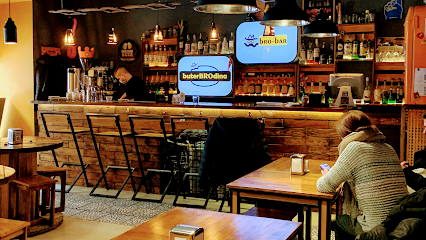
Escobar Kharkiv
Experience a fusion of Latin American and Mexican cuisines at Escobar Kharkiv, a lively gastropub in the heart of Kharkiv.
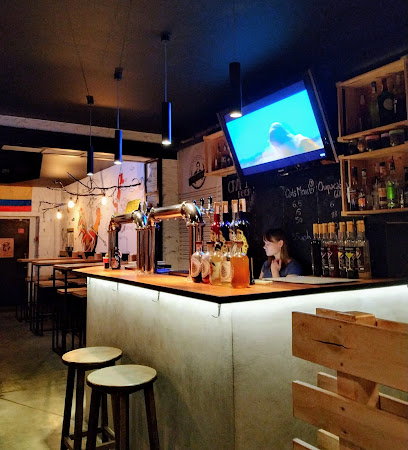
Brilliant Bar
Discover an unforgettable blend of vibrant atmosphere and exquisite drinks at Brilliant Bar in Kharkiv, a nightlife gem on Nezalezhnosti Avenue.
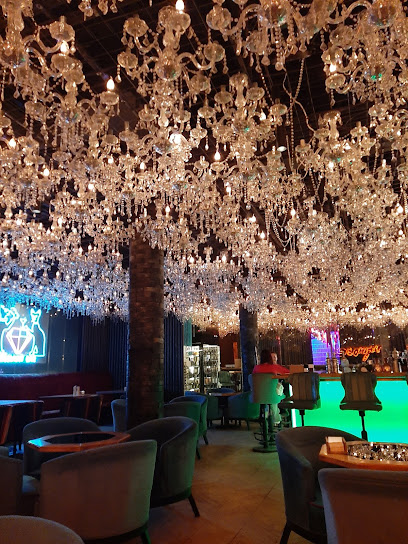
P'yana Vyshnya
Discover the vibrant atmosphere and diverse drink selection at P'yana Vyshnya, Kharkiv's premier bar for an unforgettable night out.
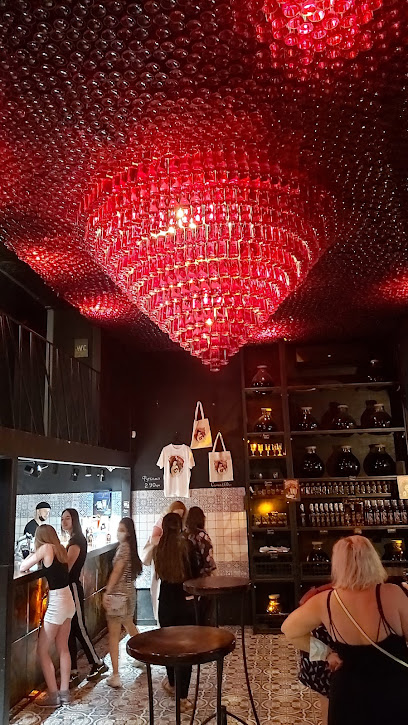
Midnight.Tarotbar
Experience the magical blend of cocktails and tarot readings at Midnight.Tarotbar, Kharkiv's enchanting cocktail haven.
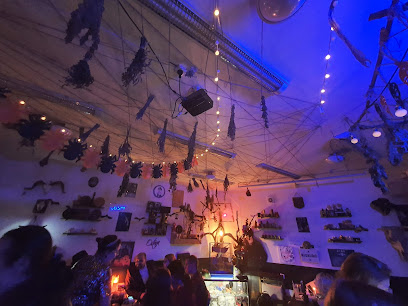
SHVILI-SHVILI wine shop&bar
Discover the essence of Georgian wine culture at SHVILI-SHVILI, an inviting bar in Kharkiv offering exquisite wines and authentic culinary delights.
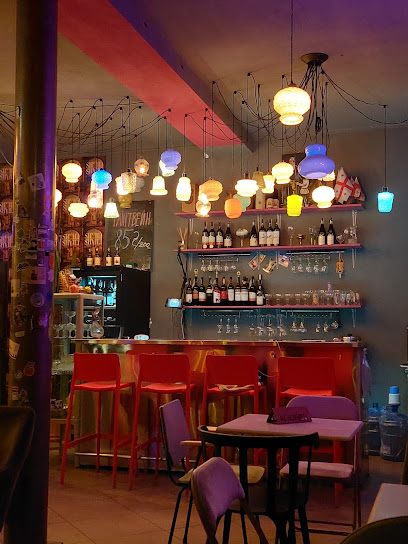
Crazy Party Bar
Discover the lively Crazy Party Bar in Kharkiv, where vibrant nightlife, creative cocktails, and unforgettable entertainment await you.

Bar Kazka
Experience the heartbeat of Kharkiv's nightlife at Bar Kazka, where live music, great drinks, and vibrant atmosphere come together.

Local Phrases
-
- HelloПривіт
[Pryvit] - GoodbyeДо побачення
[Do pobachennya] - YesТак
[Tak] - NoНі
[Ni] - Please/You're welcomeБудь ласка
[Budʹ laska] - Thank youДякую
[Dyakuyu] - Excuse me/SorryВибачте
[Vybachte] - How are you?Як справи?
[Yak spravy?] - Fine. And you?Добре. А ви?
[Dobre. A vy?] - Do you speak English?Ви говорите англійською?
[Vy hovoryte anhliysʹkoyu?] - I don't understandЯ не розумію
[Ya ne rozumiyu]
- HelloПривіт
-
- I'd like to see the menu, pleaseЯ б хотів подивитися меню, будь ласка
[Ya b khotiv podyvytysya menyoo, budʹ laska] - I don't eat meatЯ не їм м'ясо
[Ya ne yim myaso] - Cheers!Будьмо!
[Budʹmo!] - I would like to pay, pleaseЯ б хотів розрахуватися, будь ласка
[Ya b khotiv rozrakhuvatysya, budʹ laska]
- I'd like to see the menu, pleaseЯ б хотів подивитися меню, будь ласка
-
- Help!Допоможіть!
[Dopomozhitʹ!] - Go away!Піди геть!
[Pidi hetʹ!] - Call the Police!Викличте поліцію!
[Vyklychte politsiyu!] - Call a doctor!Викличте лікаря!
[Vyklychte likarya!] - I'm lostЯ загубився
[Ya zahubyvsya] - I'm illЯ хворий
[Ya khvoryy]
- Help!Допоможіть!
-
- I'd like to buy...Я б хотів купити...
[Ya b khotiv kupity...] - I'm just lookingЯ просто дивлюся
[Ya prosto dyvlyusya] - How much is it?Скільки це коштує?
[Skilʹky tse koshtuye?] - That's too expensiveЦе занадто дорого
[Tse zanadto doroho] - Can you lower the price?Чи можете ви знизити ціну?
[Chy mozhete vy znyzyty tsinu?]
- I'd like to buy...Я б хотів купити...
-
- What time is it?Котра година?
[Kotra hodyna?] - It's one o'clockОдна година
[Odna hodyna] - Half past (10)Пів на одинадцяту
[Piv na odynadtsyatu] - MorningРанок
[Ranok] - AfternoonДень
[Denʹ] - EveningВечір
[Vechir] - YesterdayВчора
[Vchora] - TodayСьогодні
[Sʹohodni] - TomorrowЗавтра
[Zavtra] - 1Один
[Odyn] - 2Два
[Dva] - 3Три
[Try] - 4Чотири
[Chotyry] - 5П'ять
[P'yatʹ] - 6Шість
[Shistʹ] - 7Сім
[Sim] - 8Вісім
[Visim] - 9Дев'ять
[Dev'yatʹ] - 10Десять
[Desyatʹ]
- What time is it?Котра година?
-
- Where's a/the...?Де є/знаходиться...?
[De ye/znakhodytsya...?] - What's the address?Яка адреса?
[Yaka adresa?] - Can you show me (on the map)?Чи можете ви мені показати (на мапі)?
[Chy mozhete vy meni pokazaty (na mapi)?] - When's the next (bus)?Коли наступний (автобус)?
[Koly nastupnyy (avtobus)?] - A ticket (to ....)Квиток (до ....)
[Kvytok (do ....)]
- Where's a/the...?Де є/знаходиться...?
History of Kharkiv
-
Kharkiv was founded in 1654 by Russian settlers on the site of an earlier Cossack fortress. It quickly grew into a strategic military and trading outpost due to its location near the border of the Russian Empire.
-
In the late 19th and early 20th centuries, Kharkiv evolved into one of the major industrial centers of the Russian Empire. It became a hub for the production of machinery, chemicals, and textiles, spurring significant population growth and urban development.
-
Kharkiv has long been a center for education and culture. The University of Kharkiv, founded in 1804, is one of the oldest universities in Eastern Europe. The city also boasts a rich cultural life, with numerous theaters, museums, and libraries.
-
During the Ukrainian-Soviet War (1917-1921), Kharkiv was briefly the capital of Soviet Ukraine from 1919 to 1934. This period saw significant political upheaval and conflict as control of the city changed hands multiple times.
-
Kharkiv was a significant battleground during World War II. The city changed hands several times between Nazi Germany and the Soviet Union, enduring devastating destruction and loss of life, particularly during the series of battles known as the Battle of Kharkov.
-
After World War II, Kharkiv underwent extensive reconstruction. The city was rebuilt and expanded, becoming a major center for scientific research, particularly in fields like aerospace and nuclear physics.
-
Following the dissolution of the Soviet Union in 1991, Kharkiv became part of an independent Ukraine. The city has continued to develop economically and culturally, playing a significant role in Ukraine’s modernization efforts.
-
In recent years, Kharkiv has faced significant challenges due to the ongoing conflict in Eastern Ukraine. Despite these difficulties, the city remains a vibrant cultural and economic center, demonstrating resilience and adaptability in the face of adversity.
Kharkiv Essentials
-
Kharkiv is well-connected by various modes of transportation. The main gateway to the city is the Kharkiv International Airport (HRK), located about 12 kilometers from the city center. Direct flights are available from several European cities. Alternatively, you can take a train to Kharkiv from major Ukrainian cities like Kyiv, Lviv, and Odessa. Buses and long-distance taxis also serve the route to Kharkiv from various parts of Ukraine.
-
Kharkiv boasts an extensive public transportation system, including buses, trams, trolleybuses, and a metro. The metro is the fastest way to navigate the city, with three lines covering the main areas. Tickets for the metro and other public transport can be purchased at kiosks or directly from drivers. Taxis are widely available and relatively inexpensive; use reputable taxi services or ride-hailing apps like Uklon or Bolt for safety. Biking is also becoming popular, with several rental spots and bike lanes around the city.
-
The official currency in Ukraine is the Ukrainian Hryvnia (UAH). Credit cards are widely accepted in hotels, restaurants, and shops in Kharkiv, but it is advisable to carry some cash for smaller establishments and markets. ATMs are plentiful, and currency exchange offices offer competitive rates. Always check the exchange rate beforehand to avoid being overcharged.
-
Kharkiv is generally safe for tourists, but like any large city, it's important to stay vigilant. Petty crimes like pickpocketing can occur in crowded areas, so keep your belongings secure. Avoid walking alone at night in poorly lit areas. Specific neighborhoods to be cautious of include Industrialnyi District and some parts of Moskovskyi District. Stick to well-trodden paths and follow local advice for the safest experience.
-
In case of an emergency, dial 101 for fire services, 102 for police, and 103 for medical emergencies. Kharkiv has several hospitals and clinics; the Kharkiv City Clinical Hospital No. 17 is one of the main medical facilities. It's advisable to have travel insurance that covers medical emergencies. Pharmacies are widely available for minor health issues, and many have English-speaking staff.
-
Fashion: Do dress modestly when visiting religious sites. Casual attire is fine for most other places, but avoid overly revealing clothing. Religion: Do show respect when entering churches and other places of worship; women might consider covering their heads. Public Transport: Do stand on the right side of escalators to allow others to pass on the left. Don't eat or drink on public transport, as it is generally frowned upon. Greetings: Do greet people with a firm handshake and maintain eye contact. Eating & Drinking: Do try local dishes and accept invitations to dine with locals; it's a significant part of the culture. Don't refuse food or drink, as it can be considered impolite.
-
To experience Kharkiv like a local, visit the Barabashova Market, one of the largest markets in Eastern Europe, for a wide array of goods. Take a stroll through Shevchenko Park, a favorite leisure spot for locals. Engage with residents; they are known for their hospitality and are often eager to share their city's history and culture. Don't miss the Kharkiv Opera and Ballet Theatre for an authentic cultural experience. For a unique perspective, visit the Derzhprom building, a prime example of Constructivist architecture.
Trending Landmark in Kharkiv
-
Shevchenko City Garden
-
Taras Shevchenko Monument
-
Mirror Stream
-
Derzhprom
-
Ferris wheel
-
Kharkiv Zoo
-
Blahovishchensʹkyy Kafedralʹnyy Sobor
-
M. F. Sumtsov Kharkiv Historical Museum
-
YermilovCentre
-
Kytsivsʹka Pustelya
-
Software and Computer Museum
-
Monument to the Soldier-Liberator
-
Roman Catholic Church of the Assumption of Mary Prisnodivy
-
Al-Manar
-
Church of the Holy Myrrh-Bearing Women
Nearby Cities to Kharkiv
-
Things To Do in Poltava
-
Things To Do in Sumy
-
Things To Do in Kremenchuk
-
Things To Do in Donetsk
-
Things To Do in Zaporozhye
-
Things To Do in Zaporizhzhia
-
Things To Do in Cherkasy
-
Things To Do in Kryvyi Rih
-
Things To Do in Mariupol
-
Things To Do in Kropyvnytskyi
-
Things To Do in Chernihiv
-
Things To Do in Kyiv
-
Things To Do in Kherson
-
Things To Do in Kerch
-
Things To Do in Vinnytsia

















